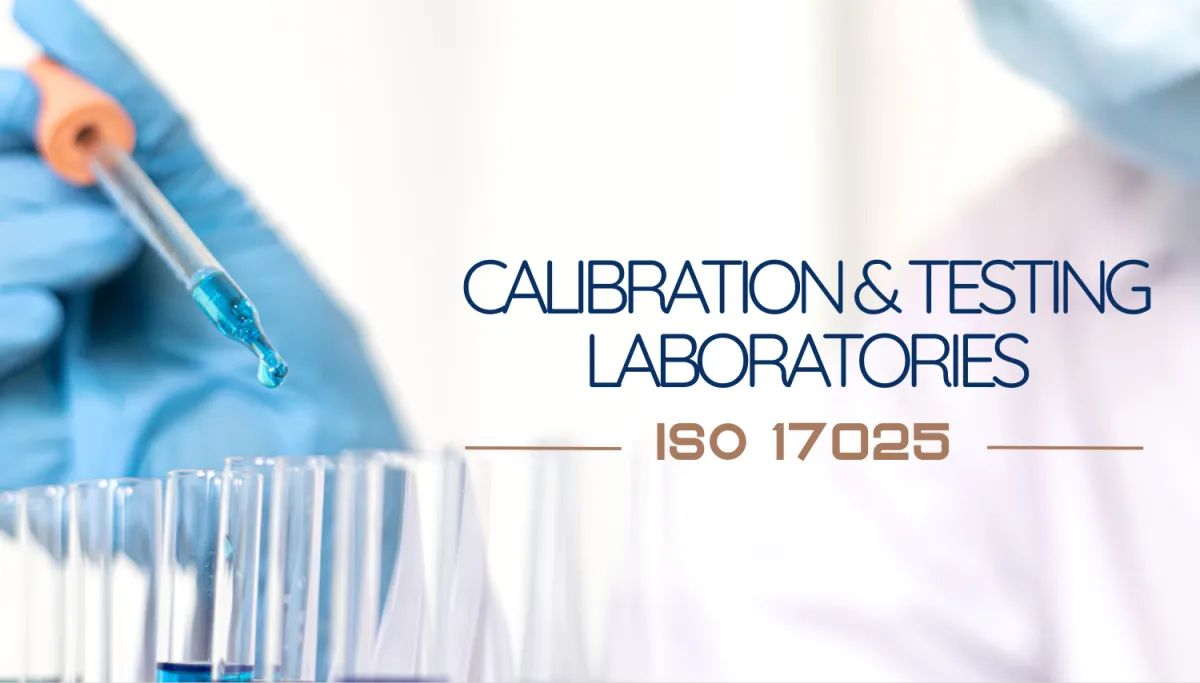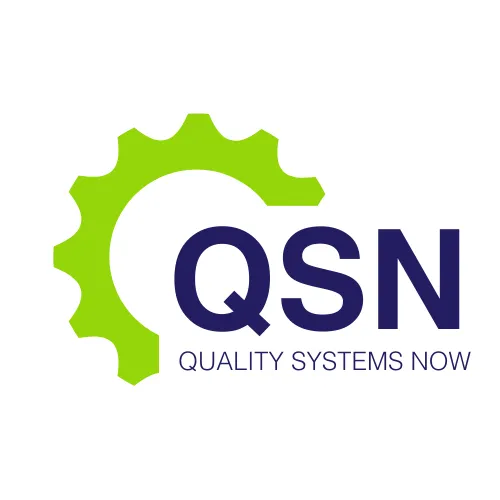NEWS

Calibration and Testing Laboratories – ISO 17025
Introduction
ISO/IEC 17025 is the globally recognised standard for the competence of testing and calibration laboratories. It specifies the general requirements for impartiality, confidentiality, technical competence, and consistent operation. Laboratories accredited to ISO 17025 demonstrate that they operate a quality system, are technically competent, and can produce valid and reliable results. For organisations engaged in the life sciences, biotechnology, medical devices, and STEM-based research and development, ISO 17025 provides a critical framework for ensuring confidence in laboratory data. This article outlines the requirements, implementation strategies, and compliance benefits of ISO 17025 accreditation, drawing from the practical expertise of Quality Systems Now, aa Australian consultancy with over 25 years of experience in supporting laboratories and regulated industries.
The Scope and Structure of ISO 17025
ISO 17025 applies to all laboratories performing testing and calibration, regardless of their size or the industry sector they support. This includes pharmaceutical laboratories, environmental testing facilities, veterinary laboratories, food testing labs, medical device verification labs, and research and academic centres offering calibration services.
The standard is structured into two key sections:
Management requirements: These align closely with ISO 9001 and relate to the operation and effectiveness of the laboratory’s quality management system (QMS).
Technical requirements: These address the competence of personnel, the suitability of methods, equipment calibration, measurement traceability, sampling, handling of test items, and result validity.
Laboratories seeking accreditation must meet both these components to ensure they deliver reliable results that can withstand regulatory and scientific scrutiny.
Importance of ISO 17025 in Regulated Environments
In pharmaceutical and medical device sectors, test and calibration data underpins product release, stability studies, equipment qualification, and method validation. Any deviation or error in laboratory data can lead to serious compliance consequences or patient harm. ISO 17025 accreditation provides assurance to regulators, clients, and stakeholders that a laboratory has robust systems in place to ensure data integrity, technical validity, and traceability.
For companies operating under Good Manufacturing Practice (GMP), ISO 17025 complements regulatory expectations by adding structure and control to laboratory practices. In fact, many regulators now expect subcontracted or internal laboratories to demonstrate ISO 17025 compliance or equivalent competence.
Quality Systems Now helps laboratories align their systems with both ISO 17025 and sector-specific standards, ensuring a harmonised and compliant quality system.
Key Requirements of ISO 17025
1. Impartiality and Confidentiality
Laboratories must identify and manage risks to impartiality arising from conflicts of interest, commercial pressures, or internal biases. Safeguards must be in place to ensure that data reporting is objective and not influenced by external or internal stakeholders. Confidentiality of client information and proprietary methods must also be protected through documented procedures.
2. Organisational Structure and Responsibilities
ISO 17025 requires a clearly defined organisational structure that delineates roles, authorities, and responsibilities. A quality manager or designated personnel must be accountable for maintaining the integrity of the management system. Lines of authority, reporting structures, and resource allocation must support laboratory activities.
3. Resource Requirements
Laboratories must ensure the availability of competent personnel, suitable equipment, adequate facilities, and reliable support services.
Personnel must be qualified, trained, and authorised to perform their tasks. Training records, competency evaluations, and ongoing supervision are critical to demonstrating compliance.
Equipment used in testing and calibration must be properly selected, maintained, calibrated, and verified. Traceability to national or international standards must be demonstrated.
Facilities and environmental conditions must be controlled to prevent contamination or invalid results, especially in microbiological and stability testing labs.
4. Process Requirements
This section governs the actual laboratory activities from receiving samples to issuing results.
Method selection and validation: Laboratories must use appropriate methods that are fit for purpose. Where non-standard methods are used, validation must confirm that they yield accurate, repeatable results.
Sample handling: Procedures must be in place for proper storage, labelling, transport, and retention of test items to avoid mix-ups and degradation.
Measurement uncertainty and traceability: Laboratories must estimate the uncertainty of measurement where applicable and ensure traceability to SI units through calibration hierarchies.
Result reporting: Reports must be clear, accurate, and include all relevant information to interpret the results correctly. Deviations, amendments, and opinions must be clearly stated.
Quality Systems Now provides method validation protocols, uncertainty of measurement training, and sample handling SOPs tailored to ISO 17025 environments.
5. Management System Requirements
Laboratories may implement either a full ISO 9001-style management system or one specific to ISO 17025, both of which must include:
Document control
Control of records
Internal audits
Corrective and preventive actions (CAPA)
Management reviews
Continuous improvement
Integration with existing ISO 9001, GMP, or ISO 13485 systems is often desirable to avoid duplication and enhance consistency. Our consultants at Quality Systems Now help establish integrated systems that streamline compliance across standards.
Implementation Strategy for ISO 17025
Achieving ISO 17025 accreditation involves a structured approach:
Gap Analysis: Review existing processes, equipment, training, and documentation against ISO 17025 requirements.
System Design: Develop the management system, procedures, forms, and quality manual aligned with the standard.
Training and Competency: Train laboratory personnel in ISO 17025 concepts, risk-based thinking, method validation, and documentation practices.
Internal Audit and Management Review: Conduct internal audits and management reviews to evaluate readiness.
Accreditation Audit: Undergo formal assessment by an accreditation body such as NATA (Australia), ensuring non-conformances are addressed effectively.
Quality Systems Now offers end-to-end support throughout the accreditation journey, including audit preparation, response to findings, and post-accreditation maintenance.
Benefits of ISO 17025 Accreditation
Credibility and trust: Accredited labs gain recognition for technical competence and integrity.
Regulatory acceptance: Data from ISO 17025 labs are more readily accepted by regulatory authorities and international markets.
Market competitiveness: Accreditation opens opportunities with clients who require validated, reproducible results.
Risk reduction: A robust system helps prevent costly errors, rework, or non-compliance issues.
Operational efficiency: Process standardisation and risk-based improvements drive consistent performance and data quality.
Common Pitfalls and How to Avoid Them
Despite the benefits, many laboratories face challenges in achieving and maintaining ISO 17025 accreditation:
Inadequate documentation: Lack of method validation records, equipment calibration logs, or training records undermines credibility.
Insufficient internal audits: Failure to identify and correct system weaknesses leads to repeat findings.
Limited understanding of measurement uncertainty: Misapplication can render test results non-compliant.
Resistance to change: Staff engagement and training are essential for successful implementation.
Quality Systems Now addresses these challenges through customised training, template documentation, and coaching that empowers your team to build a sustainable quality system.
Conclusion
ISO 17025 sets the gold standard for laboratory competence, data reliability, and continuous improvement in calibration and testing facilities. As regulatory and market expectations continue to rise, accreditation is becoming less optional and more a baseline requirement for operating in science-driven industries.
Supporting GMP-regulated, ISO-accredited, and STEM-focused organisations, Quality Systems Now is uniquely positioned to assist your laboratory on the path to ISO 17025 compliance. From system development and training to audit readiness and ongoing support, we ensure your laboratory not only meets but exceeds the standard’s expectations.
For laboratories committed to quality, accuracy, and compliance—ISO 17025 is the first step towards excellence.
